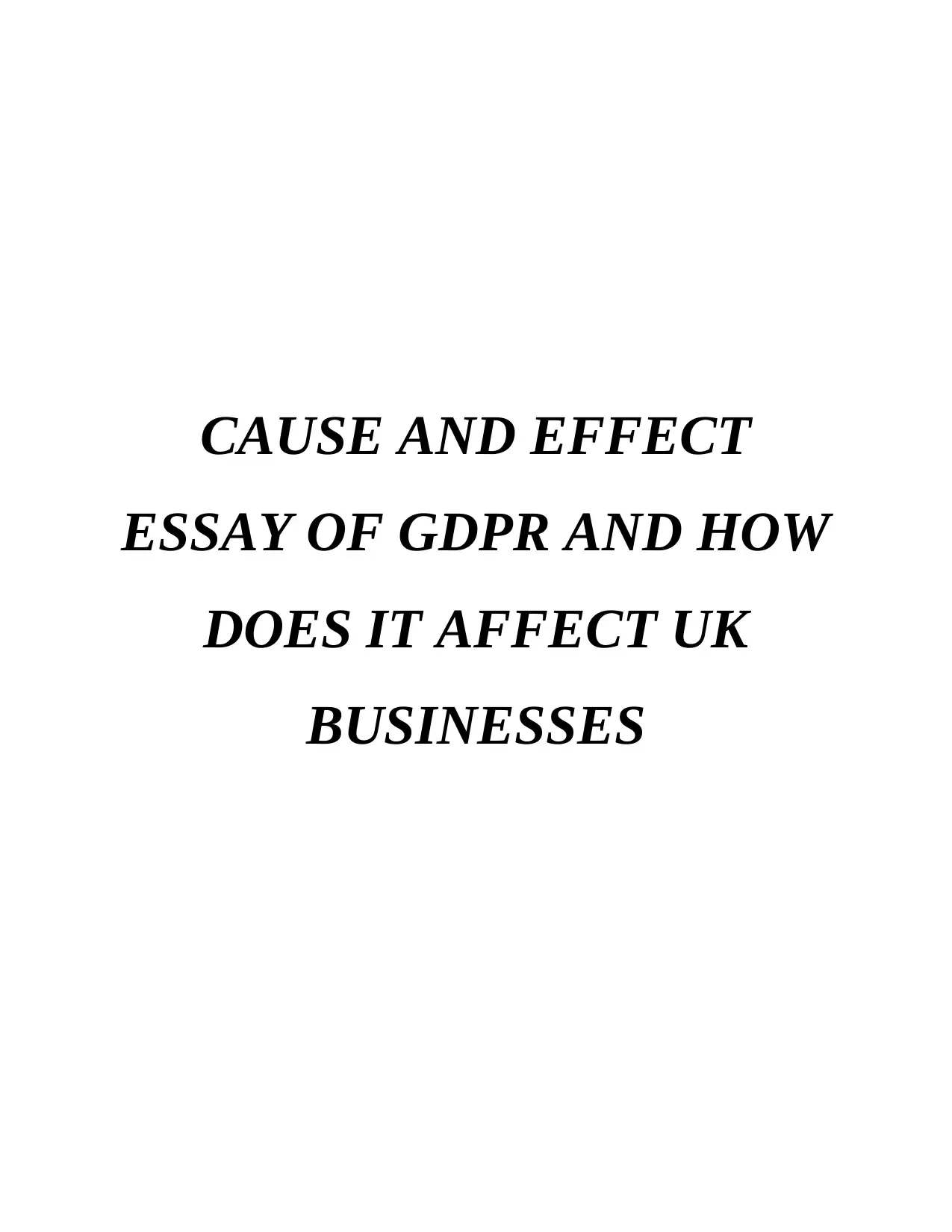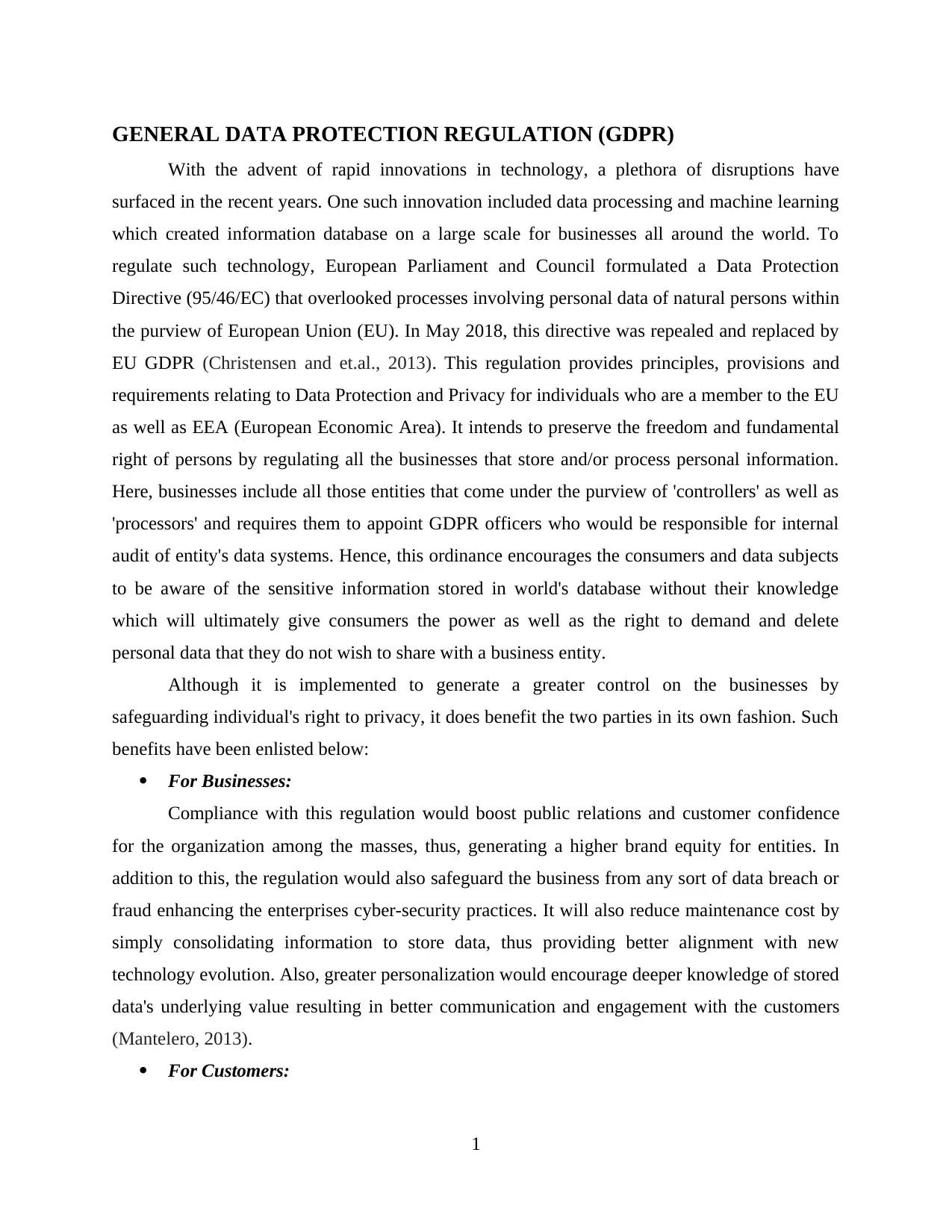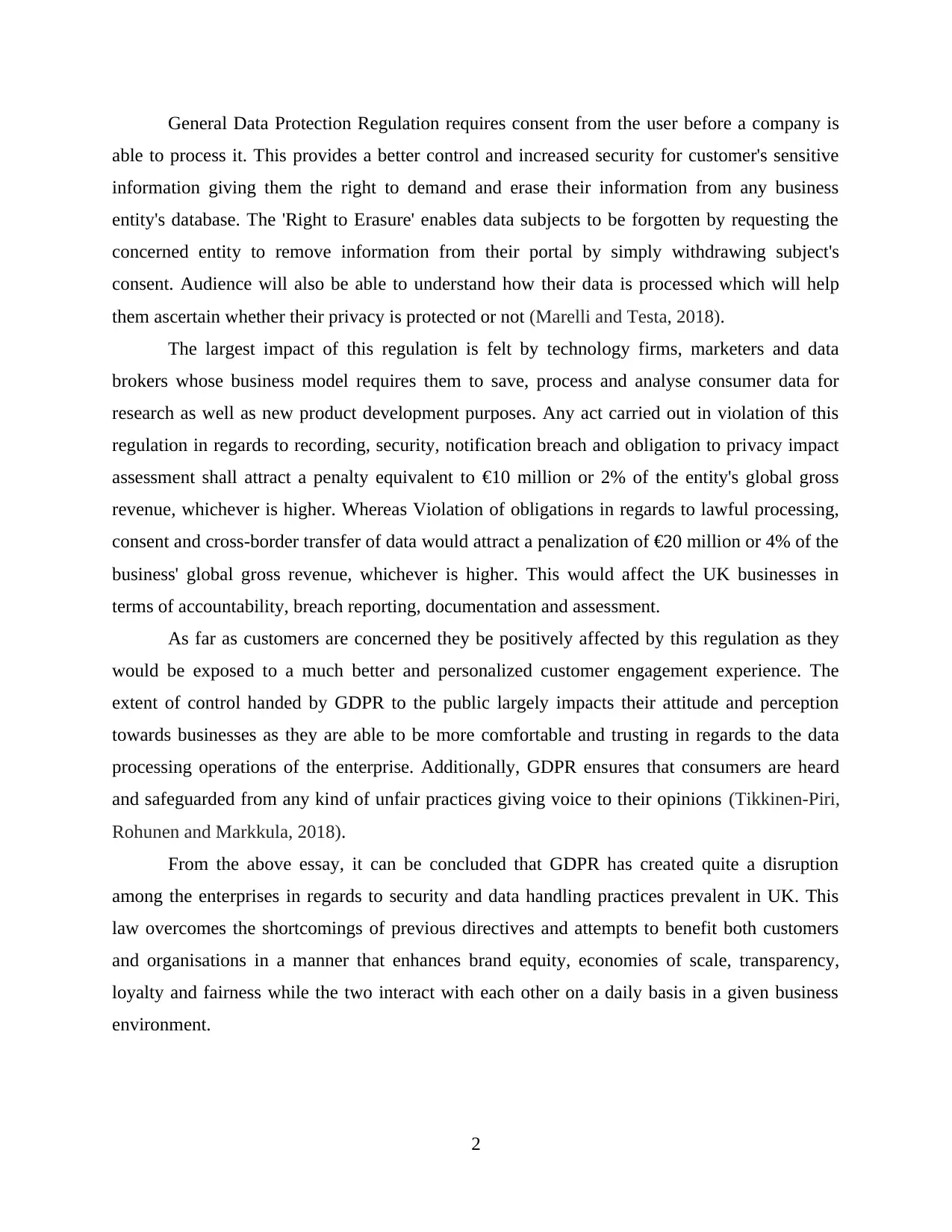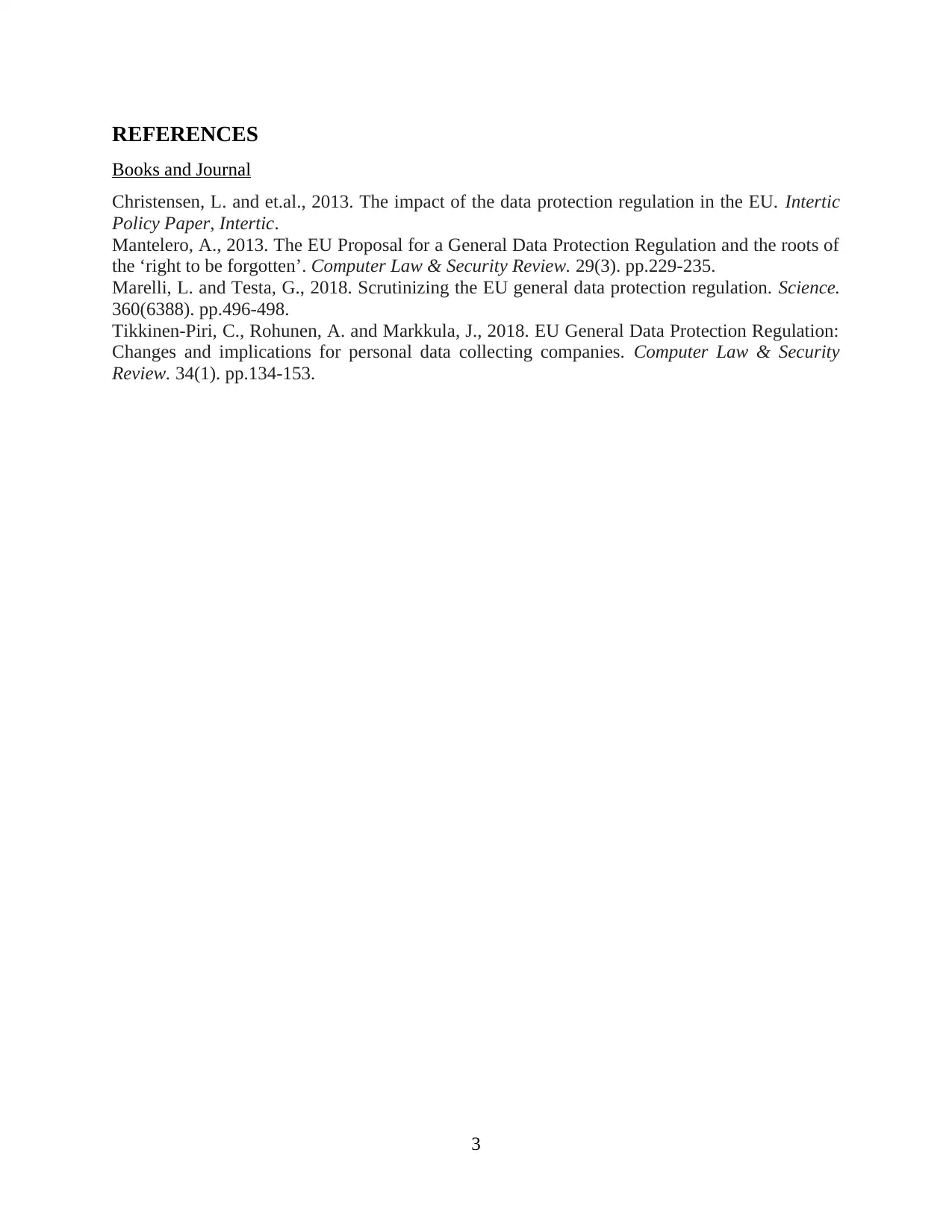General Data Protection Regulation (GDPR) and UK Businesses
VerifiedAdded on 2020/10/22
|5
|1002
|402
Essay
AI Summary
This essay examines the General Data Protection Regulation (GDPR) and its impact on UK businesses. It begins by providing a background on GDPR, highlighting its purpose to regulate data processing and protect the privacy of individuals within the EU and EEA. The essay then explores the benefits of GDPR for both businesses, such as improved public relations, enhanced cybersecurity, and reduced maintenance costs, and for customers, including greater control over their data and increased security. The largest impact of this regulation is felt by technology firms, marketers and data brokers whose business model requires them to save, process and analyse consumer data for research as well as new product development purposes. The essay also discusses the potential penalties for non-compliance, affecting UK businesses in terms of accountability, breach reporting, documentation, and assessment. It concludes that GDPR enhances brand equity, promotes economies of scale, transparency, loyalty, and fairness in business interactions while also highlighting the positive effects on customer engagement and trust.
1 out of 5











![[object Object]](/_next/static/media/star-bottom.7253800d.svg)